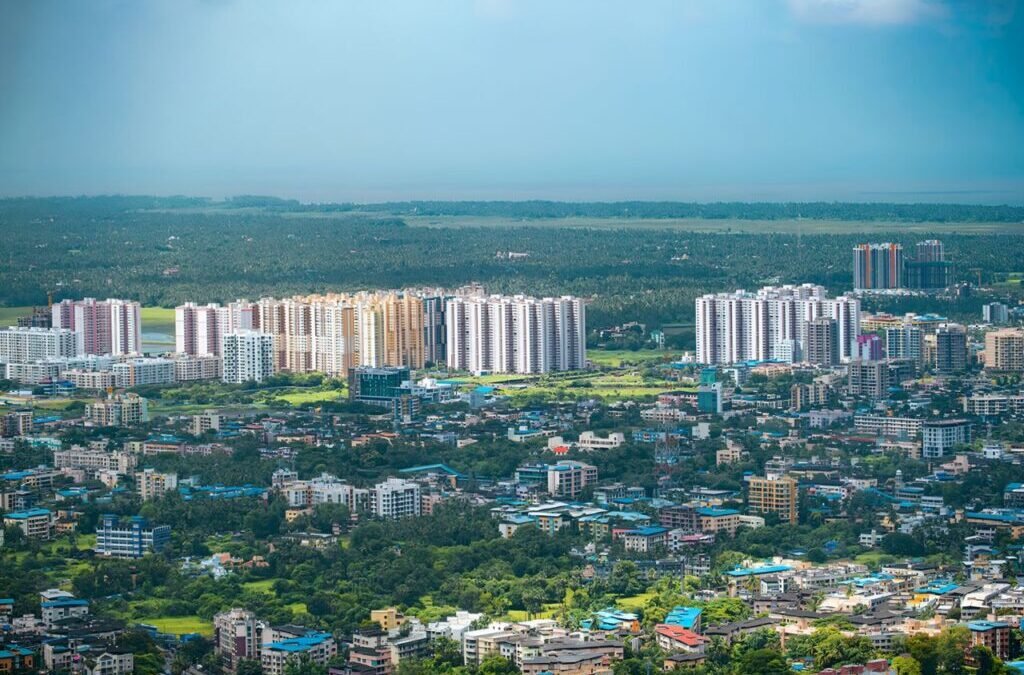Synopsis– India’s GCC industry is thriving in 2025, with several Indian cities emerging as the top hotspots for global innovation and operations. Each of these cities have got something to the table in terms of talent, infrastructure, and cost competitiveness. Along with the Tier 1, Tier-2 cities are also quickly joining the growth frontiers.
In recent times, India’s Global Capability Center (GCC) industry has come up as a key driver in the growth of the global innovation ecosystem. India boasts over 1,800 GCCs and this number is expected to cross 2,000 by 2026. India makes some of the largest MNCs in the world to establish operations in technology,Rand D, analytics and business services. With this article we will be going to know which Indian cities are on the top, and why these places are so appealing for the global businesses.
What are Global Capability Centers (GCCs)?
GCCs, also referred to as Global In-house Centers (GICs), is a multinational business strategy to have an offshore center. These are an extension of the parent organization and are driving functions like IT, finance, engineering, analytics, and even product innovation.
Top Indian Cities with the Most GCC Hubs
Bengaluru
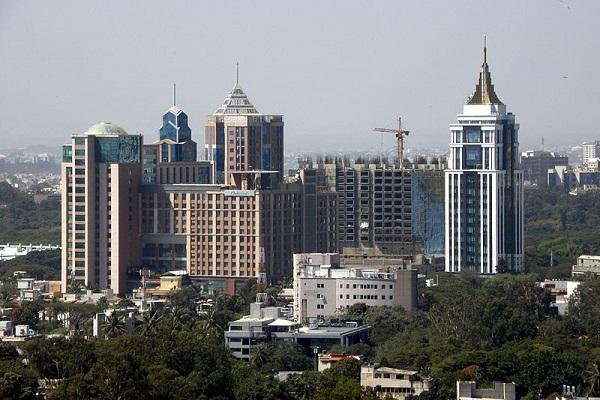
- GCC Count 2025: More than 487 centers, that is about 33% to 40% of total GCCs in India.
- Important Industries: Technology, AI and ML, IT, Banking, Fintech, Rand D.
- Major Companies: Google, Microsoft, Amazon, Goldman Sachs, Walmart, SAP.
- What Makes It Unique: Unparalleled talent pool, best-in-class technology and infrastructure, and a strong start-up ecosystem.
- Bengaluru has topped all GCC rankings consistently . Large international corporations continue to favour Bengaluru particularly because of its deep pool of engineering skills, high technology parks, and innovation-friendly ecosystem. More than one-third of new GCCs founded in India in 2025 choose Bengaluru as their launch point.
Hyderabad
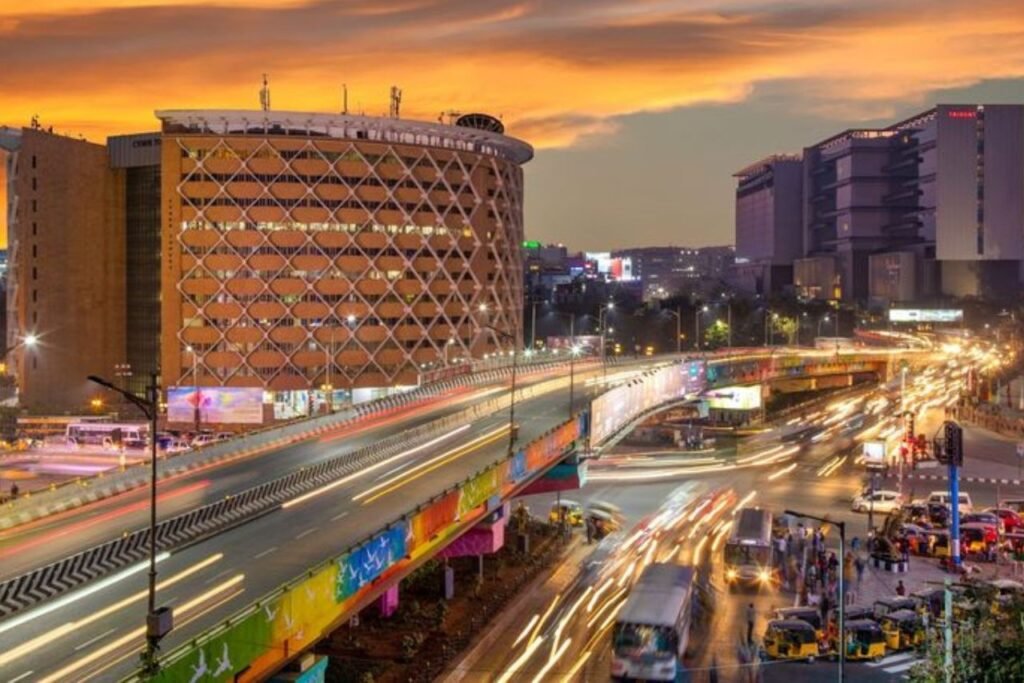
- GCC Count 2025: 273 plus centers, which represent 19-21% of India’s total GCCs.
- Critical Sectors: Pharma, IT, Aerospace, Biotechnology, BFSI.
- Prominent Companies: Amazon, Bayer, Sandoz, Roche, BlackBerry, AstraZeneca.
- What Makes It Unique: Cost-effective real estate, business-friendly government policies (TS-iPASS), and infrastructure for quick expansion.
- Hyderabad has always been behind Bengaluru and is now the second-largest GCC center in India. Having top business clusters such as HITEC City and the Financial District, Hyderabad invites Fortune 500 firms who prefer the city for its lower rentals, 20-30% less than Bengaluru, and other factors like ease of scaling their operations. Also, Global pharma and IT majors find Hyderabad most attractive to drive Rand D and high-value innovation.
Mumbai
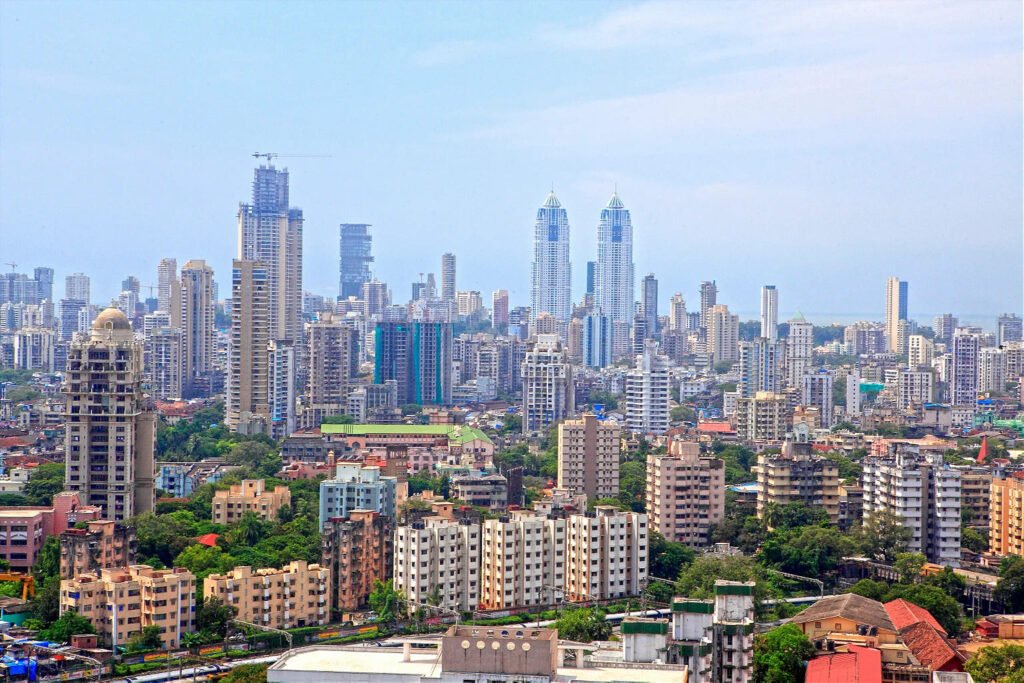
- GCC Count 2025: 207 centers.
- Focus Sectors: BFSI (Banking, Financial Services and Insurance), Media, Logistics, and Consulting.
- Significant Companies: Large banks, insurance institutions, and consulting companies.
- Why It Stands Out: Presence of top financial professionals, RBI headquarters, NSE, BSE headquarters, and finest global connectivity.
- Mumbai’s strategic location, vibrant corporate ecosystem, and superior business infrastructure makes sure it always stays as a magnet for financial GCCs, that are looking for oversea back-offices and core business functions centers for global operations.
Also read: Sarjapur vs Whitefield – Find Out Which Bangalore Hotspot Can Double Your Investment
Chennai
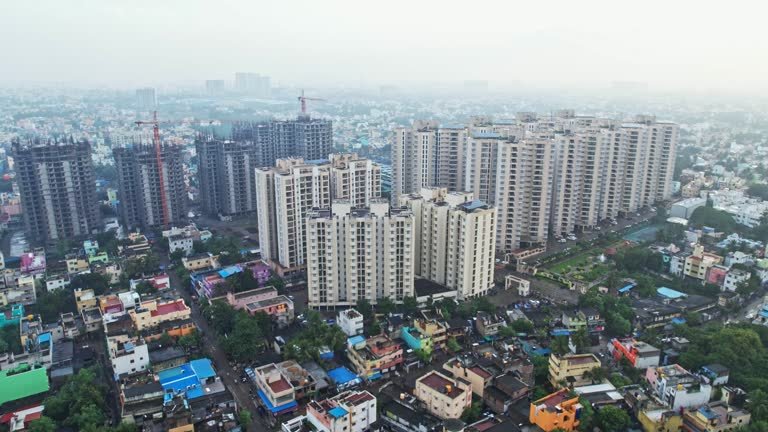
- GCC Count 2025: 162 plus centers as of 2024, making it one of the fastest-growing hubs.
- Key Sectors: Automotive, BFSI, Software Development, Rand D, Manufacturing.
- Notable Companies: AstraZeneca, Renault Nissan, Ford, Pfizer, Caterpillar, World Bank Group, Standard Chartered Bank.
- What Sets It Apart: Mix of IT and manufacturing strengths, port infrastructure, competitive costs, and a rapidly expanding tech workforce.
- Chennai’s uniqueness is its blend of manufacturing and technology capacity which makes it the Detroit of India, along with being a rising favourite for global innovation labs and Rand D-driven GCCs.
Pune
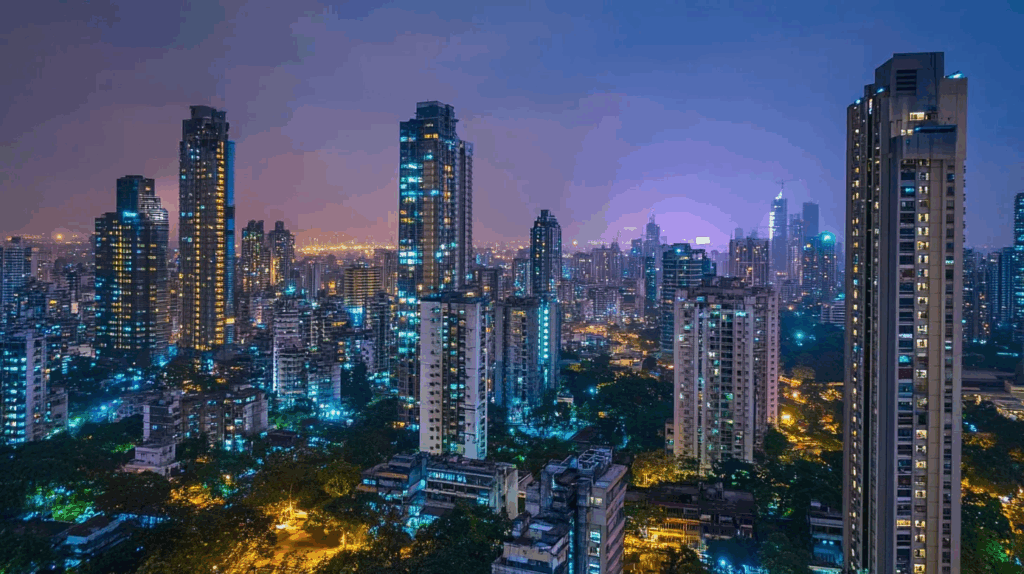
- GCC Count: 178
- GCC Focus: Manufacturing, IT, Engineering, Automotive.
- Key Strengths: Lower cost of operations, proximity to renowned universities (Symbiosis, COEP), well-established IT parks.
- The popularity of Pune as a highly educated , technology-focused workforce appeals to companies seeking to go beyond the metro majors. It keeps growing as a viable and cost-efficient option for the niche Rand D and engineering hubs.
Delhi NCR
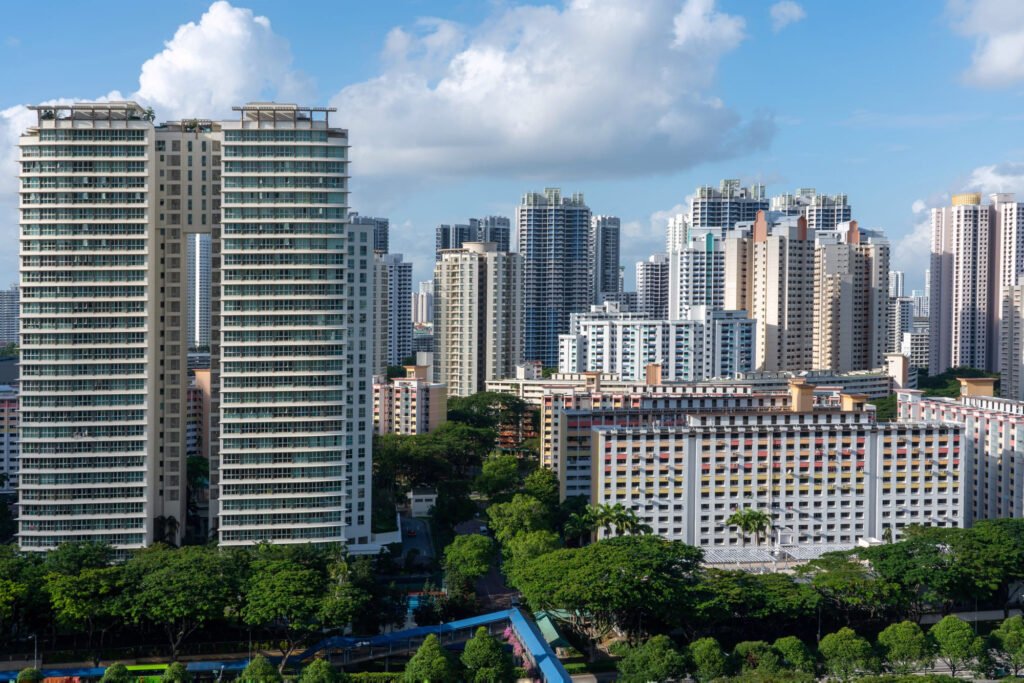
- GCC Count: 272
- GCC Focus: IT, E commerce, Retail, Financial Services, Consulting.
- Key Strengths: Availability of global IT and e-commerce leaders, robust corporate ecosystem, strategic position for North India.
- Delhi NCR is a rapid-growing business hub for GCCs with technology capabilities, particularly for those firms which desire assistance with North America and Europe operations. High-quality office space and proximity to government and regulatory institutions are the major positives.
Top Emerging Tier-2 GCC Hubs
While Tier-1 cities account for over 90% of India’s GCCs, Tier-2 cities like Coimbatore, Ahmedabad, Thiruvananthapuram, and Kochi have also started to pick up the pace. These new hubs will provide for an estimated 7% of the total GCCs in 2025, which is an increase from 5% in 2019. Factors such as low costs, better infrastructure, and a larger talent pool, make up the primary factors why these MNCs are getting attracted even to tier 2 cities.
What Drives the GCC Boom in These Cities?
- Tech and STEM Talent Density : Availability of young graduates from institutions such as the IISc, IITs, and other leading regional schools.
- World-Class Infrastructure : Grade A office premises, SEZs, and smart tech parks.
- Policy Support : Pro-business reforms, and special economic zones, and digitization initiatives.
- Cost Advantage : Reduced setting-up and operational expenses when compared to other global hubs.
- Business Ecosystem : Proximity to clients, suppliers, and overall a dynamo of start-up culture.
The Bottom Line
India’s supremacy in the GCC world is a result of years of movement in the right direction. In 2025, Bengaluru, Hyderabad, Mumbai, Chennai, Pune, and Delhi NCR remain the cities with the highest GCC nodes in India. Each of them has presented a distinct advantage, be it of the tech leadership of Bengaluru or the financial acumen of Mumbai. Concurrently, we also have Tier-2 and Tier-3 cities that are silently constructing the next set of international talent, which would keep India in the global capital for high-value capability centers even in the future.
Written by Adithya Menon
The post Top 6 Cities with the Most GCC Hubs in India 2025 – Find Out Who Tops the List appeared first on Trade Brains.

